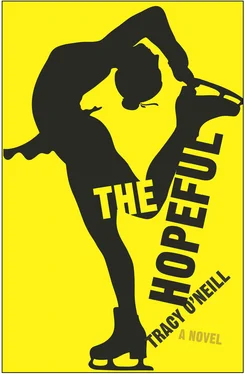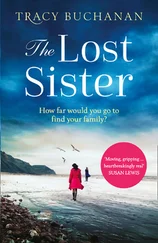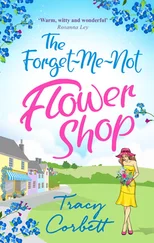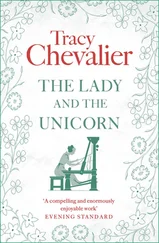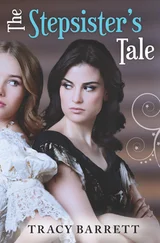Still or start? I wondered. “I’m seventeen,” I said. “My birthday is in February.”
“I was there of course, yes,” Dorothy answered. “I guess all I remembered was that it was snowing. It’s been so long.”
“Seventeen years.”
“I got your telephone number from the agency,” she said. Then there was quiet except for the sound of her breath, these long intakes of air with very little exhale. “Tell me about yourself.”
“I used to figure skate,” I said. “But I hurt myself and now I can’t.”
“That’s what you did, not who you are,” Dorothy said. “I want to know about you. You know what I’m saying?”
Until then, it hadn’t occurred to me that maybe all I was were things that had already happened. Now that I thought about it, I couldn’t think of anything else. “I don’t.”
“I mean, tell me what makes you you. I’ve been waiting all of your life to know who you are. Listen to me, two minutes talking to you and already I’m telling you what to do! I apologize. I obsess specificity. I’ve been thinking so long about when we would finally speak. You know how many times I called and had to hang up? I wanted it to be perfect. But of course I should have known all along that it would be. You’re my daughter!”
“My cousin thought you might have been a murderer,” I said.
“The closest to that I’ve done is give birth. You wouldn’t believe the blood.”
It was a joke, but I didn’t want to be generous with her, so I didn’t laugh. In the background, I could hear car horns and ambulance wails coming from her side of the call.
“You must be beautiful,” she said. “Although hair texture is inevitable unfortunately. When I was your age, I would steam my hair with an iron. Your grandmother was always telling me I was going to burn a hole right through my brain doing my hair.”
There might be some comfort in realizing one’s hair was a logical conclusion. The girls whose bodies outgrew the sport could always blame their mothers, and the girls who knew they’d always be petite could take to the ice with confidence. I wanted very much to know the shape of who I might become, but I knew the dangerous hopelessness that this knowledge could bring. I would not ask for a photograph. I could not lose the dream again. My ignorance was all that was keeping me going, besides amphetamines.
“You know, I live in New York City. Last year, I went ice skating at Rockefeller Center. Strangers told me I was a natural. If you came to visit me, we could go skating together.”
“The grit in outdoor ice is detrimental to the blades I have. They’re highly sensitive to debris.”
“You could rent skates.”
“The boots on rental skates offer no support.” I thought of the first time I’d skated, how my ankles rolled and the only way to stay up was to go forward and how I pushed and pushed from where my mother stood until I was flying away.
“It wouldn’t have to be skating. We could just spend time together. You know, eat some food. Drink some drinks. Take in a movie.”
“Maybe,” I said.
“It’s inevitable,” Dorothy replied.
“I don’t like to think anything is inevitable.” I felt a little sorry for this woman who believed that the future had already crystallized. What disappointments must have happened that she felt finality in place of potential?
“Well, it will be inevitable once you come,” she said.
“I have to go.” I reminded myself to breathe; my mother was only a stranger.
Afterward, I took two pills. I didn’t want to think about Dorothy or the repercussions of what it was we had shared.
An hour passed, and I heard the rumbling mechanism of the garage door closing. When I came into the kitchen, my mother turned away from cleaning mugs to shake a sprig of mistletoe in my direction.
“What’s this for?” I asked.
“For your afternoon with Joel Tipton,” my mother said. “It’s coming up.” She scratched my nose with the sprig of mistletoe then returned to scrubbing mugs.
“A penny for your thoughts,” I asked, and I held my hand towards her open, palm up, expectantly; for that one, she owed a cent. Then we laughed and she pivoted into that familiar position of domesticity: hands in the sink, face twisted back for a kiss. She was radiant with colored sugar, seasonal decor, and carols. Her cheek was pink beneath my lips. I would not again speak with Dorothy.
According to Mo, the best thing about AA was that the women were horny. Since they didn’t go to bars anymore, they didn’t have the same opportunities to pick up men as they used to. With limited choices, sometimes Mo could get lucky. It disgusted me, but this evening, his exploitation afforded me time to talk to John Doe in the parking lot. Crouched smoking behind a car, John Doe told me he had one hundred and twenty Dexadrine pills for me if I wanted them.
“This stuff is speed of fiat. It’s not time release; it’s pop and go. One hundred and twenty blue-chip orange pills if you know what I mean, jelly bean.”
“I thought your prescription was only one a day for thirty days.”
“It is.”
“But you said you wanted the painkillers because you didn’t have any pills left.”
“So I smoked you out, what’s the problem? Maybe you were playing deuce-seven for all I knew. I had to know what you had, muffin.”
“So not only are you a writer and a drug dealer but a poker player now too?”
“Was. The free casino drinks will get you.”
I didn’t have one-twenty to reciprocate, but John Doe said he’d give me the pills now and I could pay him later. Evidently, his stance on credit had been part of the bluff as well. I looked at his face and again was struck by its featurelessness. He was the perfect criminal, untellable, untraceable.
“And if I suddenly disappeared?”
“I’m sure Doughy Mo-ey would know where to find you. But this isn’t friendly conversation, now is it?” He brushed one finger down my cheek, and in the creeping cold gave it a hard squeeze.
“I’m not here to make friends,” I said.
“Oh but aren’t we fwiends, my little speed queen? Don’t you think about me when I’m not around? I think about you .”
“Don’t call me that,” I said, and walked away.
Back in the church community room, Mo had struck out and was consoling himself with donuts. He hooked two on his left pointer finger, and we went home. It was a silent ride, except for the sloppy chomp of wet dough. My hands were trembly, and the oncoming traffic beamed flashes of hot white light like precursors to death through the windshield. I’d begun sweating in the shivery chill of the amphetamine pill, my fourth that day, and tried to breathe evenly in the mode Dr. Ogden had taught me for nerves — inhale for three counts, hold, exhale for three counts. He had called it triangular breathing, and I waited for the calm— SOHCAHTOA SOHCAHTOA — but my breath felt too high in my chest, like it was only skimming the top of my lungs.
“You’re breathing funny,” Mo said.
“Respiratory meditation,” I gasped out.
“Just don’t do any Indian voodoo on me.”
When I got home, I ran upstairs and begged the forces of the universe — centripetal, gravity, time, space — for sleep. I sweated beneath my blanket all night to visions of light glowing and roving behind my eyes like fireflies.
My mother asked me to go to Lucy’s one day after school so that she could bring home the Christmas tree. I didn’t know why she was so worried that I’d be in her way when I spent almost all my time in my room lifting dumbbells and pedaling nowhere fast on the stationary bike. The bike had been a present for my twelfth birthday because it was quieter than a treadmill and my mother worried about me sneaking out for cardio after dark. Though she knew I’d never take candy from a stranger, she had seen enough milk carton photos.
Читать дальше
